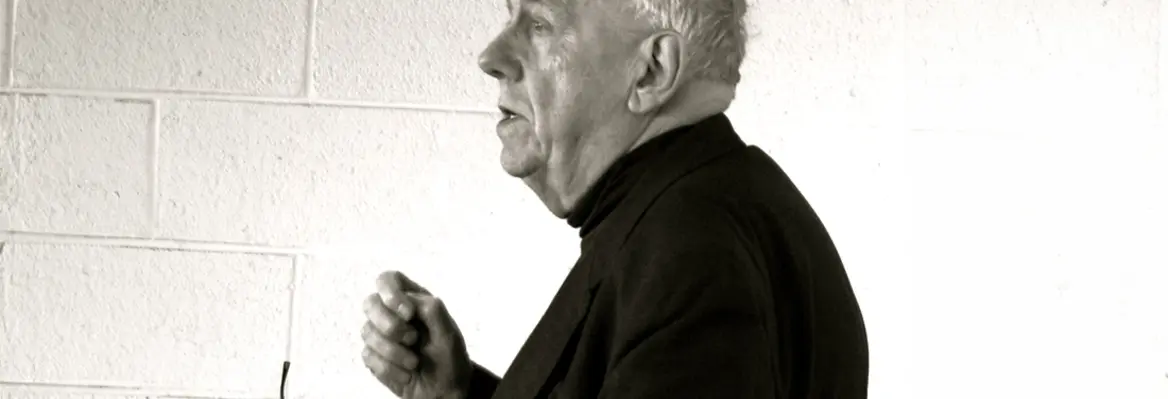Alasdair MacIntyre, who has died aged 96, was one of the most influential and unpredictable moral philosophers of the last century. In After Virtue, he argued that our moral language has become hollow, disconnected from the traditions that once gave it meaning. Rather than offer easy solutions, MacIntyre called for a radical rethinking of the ethical life. His proposal centred on virtue, community, and the long memory of tradition. Contributing Editor of IAI News, Omari Edwards, reflects on his life and the power of his thinking.
Alasdair MacIntyre wasn’t your typical philosopher. He never earned a PhD, changed intellectual traditions more than once, and spent a career defying ideological boxes. He began as a Marxist in the orbit of the British New Left, dabbled in analytic philosophy, and ended up a Thomist and Catholic, lecturing for decades at Notre Dame. But his journey wasn’t a series of rebrandings. It was the mark of a thinker constantly circling a single, insistent question. How can we live good lives in a world that no longer knows what the good is?
___
No wonder, he argued, that so much public moral discourse feels like shouting into the void.
___
His answer came in After Virtue, a book that sparked something close to existential crisis in many of its readers. It opened with a parable, picked up from the great work of sci-fi, A Canticle from Leibowitz. Imagine a society that has lost all scientific knowledge in a disaster. People still talk about atoms and experiments, but the real content of science is gone. For MacIntyre, that’s our moral world. We use words like “justice” and “rights,” but they’re fragments. They are disconnected from the traditions and practices that once gave them life.
This, he said, is what happens when moral language is severed from its roots. What remains is a performance of moral argument, not the thing itself. No wonder, he argued, that so much public moral discourse feels like shouting into the void.
MacIntyre’s critique focused on a central failure of the modern age. The Enlightenment’s attempt to rebuild morality using reason alone. Philosophers like Kant, Hume, and Bentham all tried, in different ways, to create an ethical system that didn’t rely on tradition or religion. But for MacIntyre, their projects were doomed. Without a shared understanding of what human beings are for, their telos or end, moral reasoning became unmoored.
In the vacuum, something else took over. MacIntyre called this emotivism, the idea that moral claims are just expressions of preference or feeling. Say that something is “wrong” and all you’re really doing, on this view, is saying that you disapprove of it. That might make for vibrant public debate, but not for rational moral inquiry. MacIntyre’s diagnosis was bleak. “There seems to be no rational way of securing moral agreement in our culture.”
But After Virtue was not just a lament. It was also a map out of the wilderness. MacIntyre’s proposal was a return to virtue ethics. Not as nostalgia but as a live, radical alternative. Instead of grounding morality in abstract rules or calculations, we should ground it in practices.





















Join the conversation